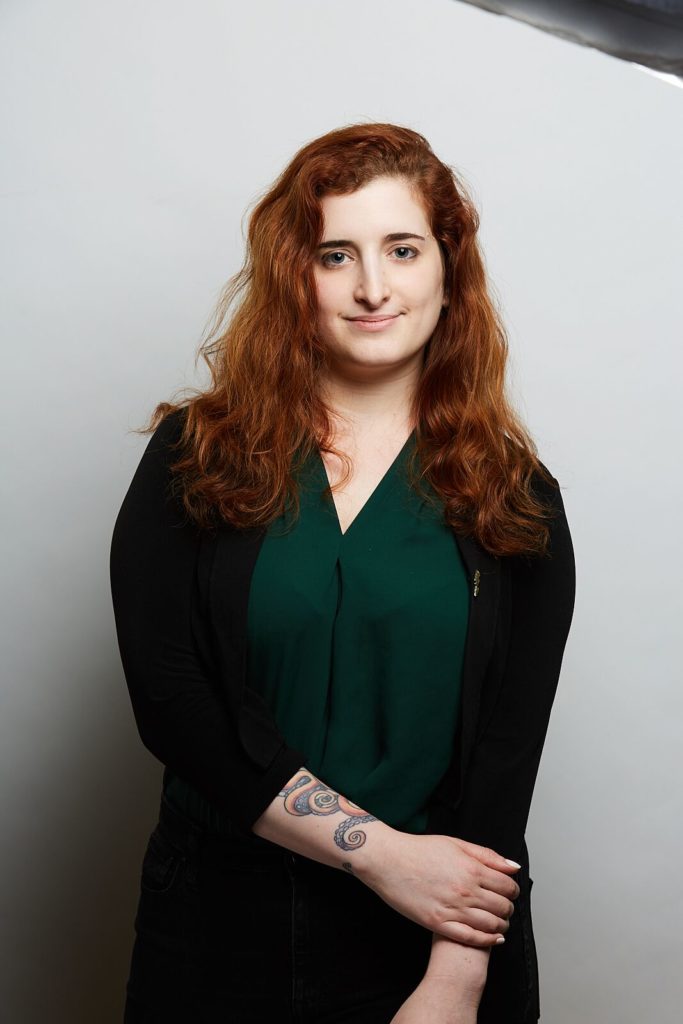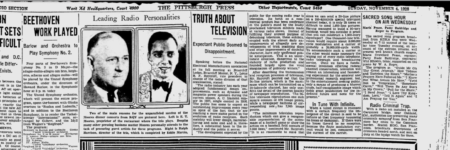Prefer to listen instead? We add new stories regularly to the podcast Timber—Stories for Podcasters.
Another day at work. Your coworker tells you about an archaeological dig that uncovered the skeleton of a baby that, apparently, was born in the grave itself. You’re completely unfazed. “Oh yeah,” you say. “Coffin birth.”
That was one of the (many such) incidents that made Rachel Feltman, articles editor at Popular Science, realize that the facts she knew off the top of her head and came across daily were “totally new stories for a lot of people.” It’s a trait shared by many science journalists, who delight in this kind of stuff, in the did-you-knows and gross facts and odd nuggets of information.
Feltman and her co-hosts (a rotating cast of Popular Science editors) don’t have the gravitas of Science Radio Voice.
So when Popular Science started thinking about putting together a podcast, Feltman floated the idea that would become Weirdest Thing, or Weirdest Thing I Learned This Week. Inspirations included The Memory Palace, 99 Percent Invisible, and No Such Thing as a Fish, though Feltman adds that those podcasts are far more produced and complicated than Weirdest Thing. Weirdest Thing is exactly what it sounds like: Feltman, and two colleagues, talking about something odd they came across while researching, things that “we might not write a whole article about, but would be fun to talk about.”
Not all of the things are weird, mind you. Some are wholesome and heartwarming. Apparently, there’s a family in South Carolina that has recorded the weather every day since 1893 on behalf of the federal government. There’s a theory that Benedictine abbess and mystic Hildegard of Bingen wrote the first description of the female orgasm. And did you know that chainsaws were originally developed as an aid for difficult births?
Two years on, the hosts have learned that everyone loves animal stories and that bizarre history facts are a hit. Particularly titillating episodes, about topless duels or Nazis eating poop, can lead to a slight listener surge, though choosing topics remains more of an art than a science. The podcast has the institutional PopSci backing and can use its social media channels, which has been a huge help, especially since nobody works on Weirdest Thing full-time. Other growth comes from pushing hard to be promoted on Apple or Spotify, which is easier when there are special guests or a new season (which makes it pay off to take breaks).
Weirdest Thing is simple. It’s fun, and casual, and personality-driven. And it’s female.

Smart, female-driven podcasts obviously exist—think Alie Ward’s Ologies and Rose Eveleth’s Flash Forward and Arielle Duhaim-Ross’s Reset—but when it comes to people sitting together in a room chatting about science, the canonical podcast is Radiolab, which is traditionally very male and very middle-aged. In the public imagination, scientists are men. Science journalists, too, or at least the “real” ones, are often expected to be men. Science is very, you know, serious.
Feltman and her co-hosts (a rotating cast of Popular Science editors) don’t have the gravitas of Science Radio Voice. They say “like” and make jokes about the Founding Fathers and Kim Kardashian. They talk like themselves, and so most of the complaints have been about them giggling too much and having the gendered voice pattern called vocal fry—even though men, including famous radio man Ira Glass, have vocal fry too. “We get messages that are admonishing us for being so silly and saying that more people would listen to our podcast if we took things more seriously and spoke more eloquently,” Feltman says.
From then to now
Flip a coin, and the “weakness” can be a strength. For some, the sillier, lighter side of the science, without the Radio Voice, is precisely what has drawn them to the podcast and to the rest of the community.
The humor extends into everything else: an Instagram that highlights the upcoming episodes’ quips, a Twitter with Batman GIFs, and a private Weirdest Thing Facebook group that includes a lot of people who even don’t listen to the podcast and are instead “just Facebook Group addicts who love weird facts.”
The private Facebook group creates a sense of exclusivity, but the original decision to keep it closed wasn’t a marketing tactic. It came from the desire to make sure that the community remained a comfortable space. It’s hard to keep an online space respectful when the group is entirely public, according to PopSci Digital Director Amy Schellenbaum. Anyone can join, but new members are asked to make sure that all facts shared come from reliable sources and understand that graphic or racist or homophobic language won’t be tolerated.
Creating a safe platform may be an essential part of community-building, but the facts on the podcast itself don’t always have happy endings. That can leave listeners feeling betrayed, but the hosts have never said that they would only provide rainbows and fuzzy feelings. Weirdest Thing is calming, and often an escape, but it’s not always positive. It’s not news, either. Though the original idea was to pull facts that didn’t make it into online articles, today Weirdest Thing is no longer attached to the news cycle and has a new episode every two weeks instead of weekly. That allows the hosts to share “genuinely surprising things” that feel evergreen instead of being attached to the story du jour, and also sets it apart from the many COVID-focused podcasts that have cropped up in the wake of the pandemic.
Not that Feltman is worried about the competition, or that it’s a zero-sum game for voice-y female-led science podcasts. There are science podcasts for traditionalists and Weirdest Thing isn’t one of them, but it’s good, too, that it’s not the only alternative. “There’s been a great surge of female and non-white voices in podcasting over the past few years and I can only hope it continues,” she says.




Comments